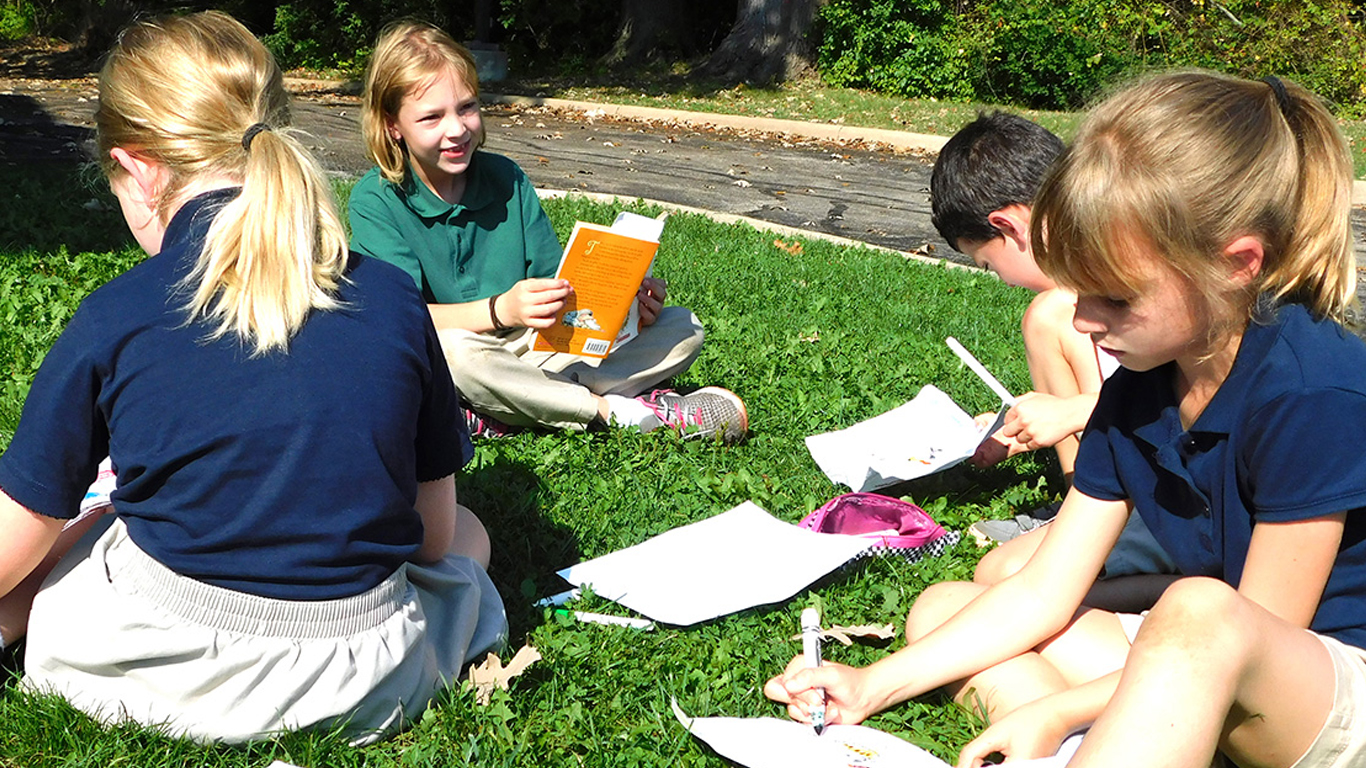G.K. Chesterton once said that “Education is not a subject, and it does not deal in subjects. It is instead the transfer of a way of life.”
Classical education is not a new phenomenon. It is not some new idea that a few privileged modern literati have cooked up ex nihilo. Classical education is simply education, done right. The practice of education has undergone a series of experiments in the last 100 years or so. These experiments are collectively called Progressive Education. People like John Dewey, Johann Basedow, and Maria Montessori experimented with education. People have always sought to tweak and improve education, but Progressives sought to change education while operating off of false philosophical assumptions. Because of a mechanistic view of man they thought of education as the transfer of information, not as the transfer of a way of life or the transformation of a soul.
Classical education is simply the realization that these most recent experiments have not worked and that we need to return to the way education was done before. Classical education is simply education, done right. Education which does not deal in subject or facts, so much as in soul and humanity. Education deals not in transfer, but transformation. In the shaping of hearts rather than the stuffing of minds.
Classical teachers do not teach subjects; they teach students. Yes, we want our students to understand math, Latin, and Plato, but more than that we want to model for our students a love of learning, a love of God, and a love of others. We want to impart to our students a way of living that is true, good, and beautiful. We want to produce students who are good at algebra, but we are more concerned with nurturing students who understand and seek after virtue.
I have the privilege of having received a classical education. That means that I received an excellent education in facts. My thought processes have been shaped by the order, structure, and supreme logic of the Latin language. I am familiar and comfortable with the great works of our civilization. I know the stories that have made our culture what it is today. I have been trained in logic, geometry, linguistics, the scientific method, historical analysis, and many, many other subjects. The primary purpose and the best result of my education, however, has not been learning these subjects, but the way of life that was imparted to me.
I have been given a love of truth. Classical education teaches students not what, but how to think. The end of our thinking is to find truth. Christ and the Word of God are the ultimate source of truth. God has also revealed truth through His creation. The job of a thinking Christian is to seek out truth. To understand and interact with complicated and sophisticated arguments about the nature of the world. To discern truth from fiction. To love the truth, even when it is uncomfortable.
I have been given a love of beauty. God in His mercy has filled this world with beauty. The beautiful parts of the world transcend the pretty, the trite, and the pleasurable. Natural, unredeemed man, does not like being shown God. Beauty shows too clear a picture of who God is for natural man to love it. The goal of an education should be, as mine was, to teach children to love that which is more beautiful than they are: to love beauty.
I have been given a love of goodness. God is ultimately the source of goodness. All good things come down from the Father of Lights. It is not easy to love goodness. Man naturally loves the comfortable, the normal, the familiar, and the easy. God, however, desires goodness and confidently proclaims about every aspect of His great creative work that, “It is good.” My teachers gave me a desire to seek out the good, pursue excellence, and love righteousness.
My classical education taught me to love truth, beauty, and goodness. It was the people who taught me before they taught the material that made me into the person I am today.







